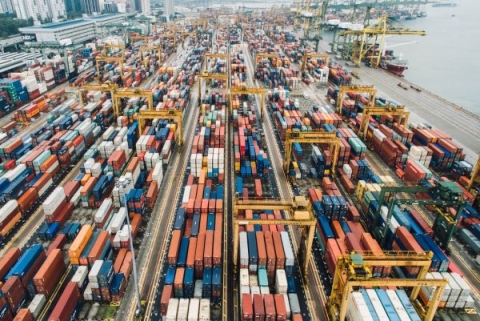

11 May 2021
3 min read
A new study from the University of Portsmouth calls for further government oversight to curb potential illegal activity through these zones.
This study demonstrates the attractive trading advantages offered by freeports to enable enterprise and innovation. Eight new freeports in England are due to enter operation in late 2021, which are hoped to drive investment, economic opportunities and growth to those regions.
However, researchers also advise that stronger regulation is needed to prevent Freeports being abused for money-laundering and tax-evasion purposes. The study, published today in the Journal of Money Laundering Control, raises justifiable concerns over the misuse of Freeports.
In early 2020, and with Brexit looming on the horizon, the UK government published a consultation into proposals to create Freeports across the country. The idea was to stimulate the economy following the departure from the EU.
Report lead author Paul Gilmour, from the University’s Institute of Criminal Justice Studies, explains the role of freeports. He says: "In their basic form they are warehouses located within free-trade zones that lie within a country’s geographical border but are designated by that country’s government to be outside its normal customs regime."
Freeports do seem to provide innovative trading advantages to enable businesses to thrive in today’s competitive global market.
Paul Gilmour, School of Criminology and Criminal Justice, University of Portsmouth
"The companies based within these zones enjoy several concessions, such as cheaper import duties, suspended custom obligations, and reduced bureaucratic checks intended to streamline cross-border trade. They effectively act as offshore jurisdictions that offer attractive trading advantages which enable enterprise and innovation."
The research examined existing freeports around the world and found they are often used as tactical depots: intended as spaces to temporarily house valuable assets, such as artwork, precious metals and gems, wine collections and antiques.
Researchers say that many art dealers now commonly exploit the beneficial goods-in-transit position of freeports, to house assets on a more permanent basis. This means, as long as the dealers’ goods remain within the freeports storage facility, those dealers are unaccountable for any duties (such as value-added taxes [VAT] or capital gains taxes) which would normally be applied upon export.
Gilmour explains: "The growth in freeports may have originally evolved from a desire to stimulate global investment by deregulating financial markets. However, there is an argument that permanent storage spaces within freeports only act to stifle capital mobility. Nonetheless, freeports do seem to provide innovative trading advantages to enable businesses to thrive in today’s competitive global market."
There is also evidence that these zones enable trade-based money laundering by the falsifying of trade invoices to deceive authorities.
Paul Gilmour, School of Criminology and Criminal Justice, University of Portsmouth.
The study warns that freeports can be abused for money-laundering and tax-evasion purposes because of a lack of transparency. It says they can help to obscure the true beneficial owners of assets through secretive corporate practices that thwart efforts by authorities to trace illicit profits and recoup government taxes.
"There is also evidence that these zones enable trade-based money laundering by the falsifying of trade invoices to deceive authorities," says Gilmour. "The many international transactions occurring through freeports, coupled with a lack of regulatory supervision, poses notable challenges for government officials."
The study suggests that banks that facilitate numerous international trade transactions need to be more alert to illicit trading and should be responsible for carrying out proper due diligence around freeport trade. It says that although governments have recognised the threat that freeports present by ensuring they fall within the scope of anti-money laundering control, there is still opportunity for freeports to operate without transparency.
